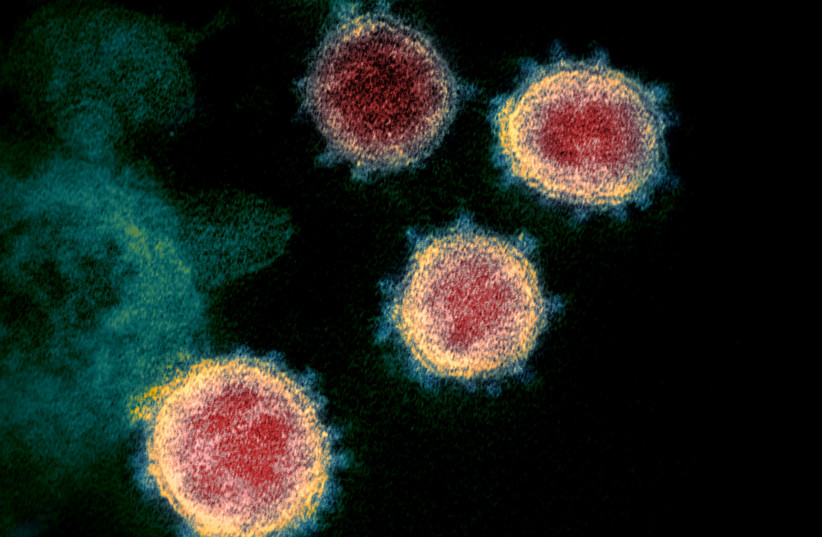Coronavirus outbreak hits Belgian Antarctic research outpost
Coronavirus outbreak hits Belgian Antarctic research outpost
After two years of the pandemic, one of the world's most remote regions - a 25-person Belgian outpost in Antarctica - was exposed to COVID-19.

Penguins are seen in Curverville Island, Antarctica, February 15, 2018
(photo credit: ALEXANDRE MENEGHINI/ REUTERS)
A coronavirus outbreak has hit one of the world's most remote regions, with two-thirds of the 25 workers at the Belgian Princess Elisabeth Polar Station in Antarctica having caught the virus since mid-December, according to the Le Soir magazine.
All of the employees at the station are in light condition and all were vaccinated with at least two doses of the coronavirus vaccine.
The first case was detected on December 13, with three infections. Although the three were evacuated on December 23, the virus spread throughout the station. It is equipped with two emergency physicians and all the necessary equipment on hand to treat the disease caused by the virus, as well as the ability to analyze PCR tests.
Entry to the station has been blocked until the numbers begin to drop, according to Le Soir. A virologist consulted by the Belgian Polar Secretariat stated that the outbreak was likely caused by the Omicron variant, as it was the most common variant in South Africa, the last stopover before Antarctica.
The outbreak took place despite very strict health cautions taken by the crew on their way to Antarctica.
 This undated transmission electron microscope image shows SARS-CoV-2, also known as novel coronavirus, the virus that causes COVID-19, isolated from a patient in the U.S. Virus particles are shown emerging from the surface of cells cultured in the lab. The spikes on the outer edge of the virus parti (credit: NIAID-RML/FILE PHOTO/HANDOUT VIA REUTERS)
This undated transmission electron microscope image shows SARS-CoV-2, also known as novel coronavirus, the virus that causes COVID-19, isolated from a patient in the U.S. Virus particles are shown emerging from the surface of cells cultured in the lab. The spikes on the outer edge of the virus parti (credit: NIAID-RML/FILE PHOTO/HANDOUT VIA REUTERS)The researchers who are at the station currently had to undergo a PCR test in Belgium two hours before leaving for South Africa and then another PCR test five days after arriving in Cape Town, as well as ten days of quarantine. After quarantine, the workers had to undergo PCR test before leaving, followed by yet another test five days after they arrived in Antarctica.
Concerning the outbreak, Joseph Cheek, a project manager for the International Polar Foundation, told the BBC that "the situation isn't dramatic."
"While it has been an inconvenience to have to quarantine certain members of the staff who caught the virus, it hasn't significantly affected our work at the station overall," said Cheek to the BBC. "All residents of the station were offered the opportunity to leave on a scheduled flight on January 12. However, they all expressed their wish to stay and continue their work."
Antarctica was the last continent to be COVID-19 free until December 2020, when dozens of workers at the Chilean Bernardo O'Higgins base and Las Estrellas' village were found to be infected with SARS-CoV-2.
Source: The Jerusalem Post
Comments
Post a Comment